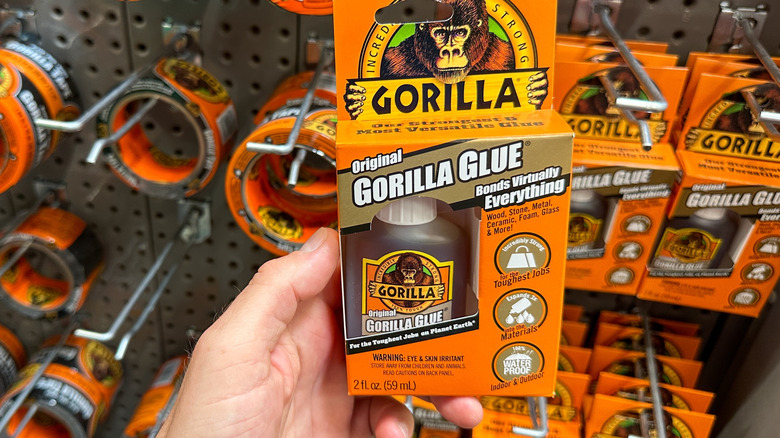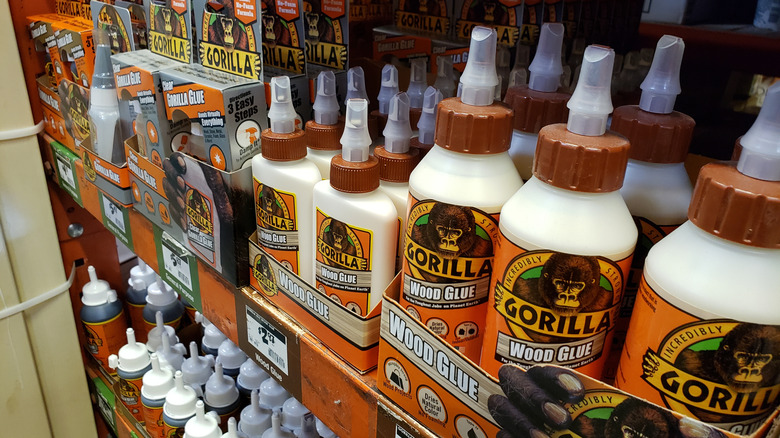The Material You Should Avoid Using Gorilla Glue On (And Why It Matters)
Gorilla Glue is known for its incredible bonding strength and versatility, making it a go-to adhesive for many DIY enthusiasts and professionals. However, not all materials are suitable for use with Gorilla Glue, and understanding these limitations is crucial to avoid potential mishaps. The one material you'll want to avoid is plastic made from polyethylene and polypropylene. These types of plastics are commonly found in everyday items like packaging, toys, and various household goods. Despite their prevalence, attempting to bond these plastics with Gorilla Glue may lead to unsatisfactory results and even damage the materials involved.
Using the wrong adhesive can result in weak bonds that may fail under stress. If you need to repair your polyethylene water bottle and try using Gorilla Glue, the bond may not hold, causing your bottle to continue leaking or render it unusable altogether. Similarly, Gorilla Glue used on polypropylene items, like plastic furniture or storage bins, may not adhere properly, leading to further structural weakness and potential breakage. These types of plastics have a low surface energy, meaning they do not easily form a strong bond with adhesives. Gorilla Glue relies on moisture to activate its bonding properties and struggles to adhere to these plastic surfaces because they do not hold moisture well. This incompatibility can result in a bond that is not only weak, but also prone to peeling or breaking over time. Sometimes, the damaged caused by using the wrong adhesive can be irreversible and you'll end up having to replace the entire item.
The properties of and best surfaces for Gorilla Glue
If you want to choose the right adhesive for your home projects, it's necessary to understand the properties and best applications of Gorilla Glue. Some of the best surfaces to use Gorilla Glue on include wood, ceramic, stone, glass, foam, and fabric. Gorilla Glue is particularly effective on various types of wood including hardwoods, softwoods, and wood composites. Its ability to expand helps fill the gaps and create a strong, durable bond, making it ideal for woodworking projects and repairs. This adhesive also works well on metals like steel, aluminum, and brass, forming a solidified bond that can withstand stress and environmental factors.
As mentioned earlier, Gorilla Glue adheres well to anything that retains moisture. This is because it's a polyurethane-based adhesive and it undergoes a chemical reaction when exposed to moisture that causes the glue to expand as it cures. The glue can expand up to three times its original volume, which help fills gaps and bond uneven surfaces. Interestingly, once it's cured, Gorilla Glue becomes highly resistant to water — something you likely already know if you've ever tried to remove dried Gorilla Glue from your skin.
Gorilla Glue offers several specialized products designed for specific applications. Gorilla Super Glue is ideal for quick fixes and bonds well with nonporous surfaces like metal and certain plastics. Gorilla Wood Glue is specifically formulated for wood projects and can provide a strong, natural-looking finish. Understanding the properties and best uses of Gorilla Glue can help you save time and avoid further damaging your polyethylene and polypropylene items.

